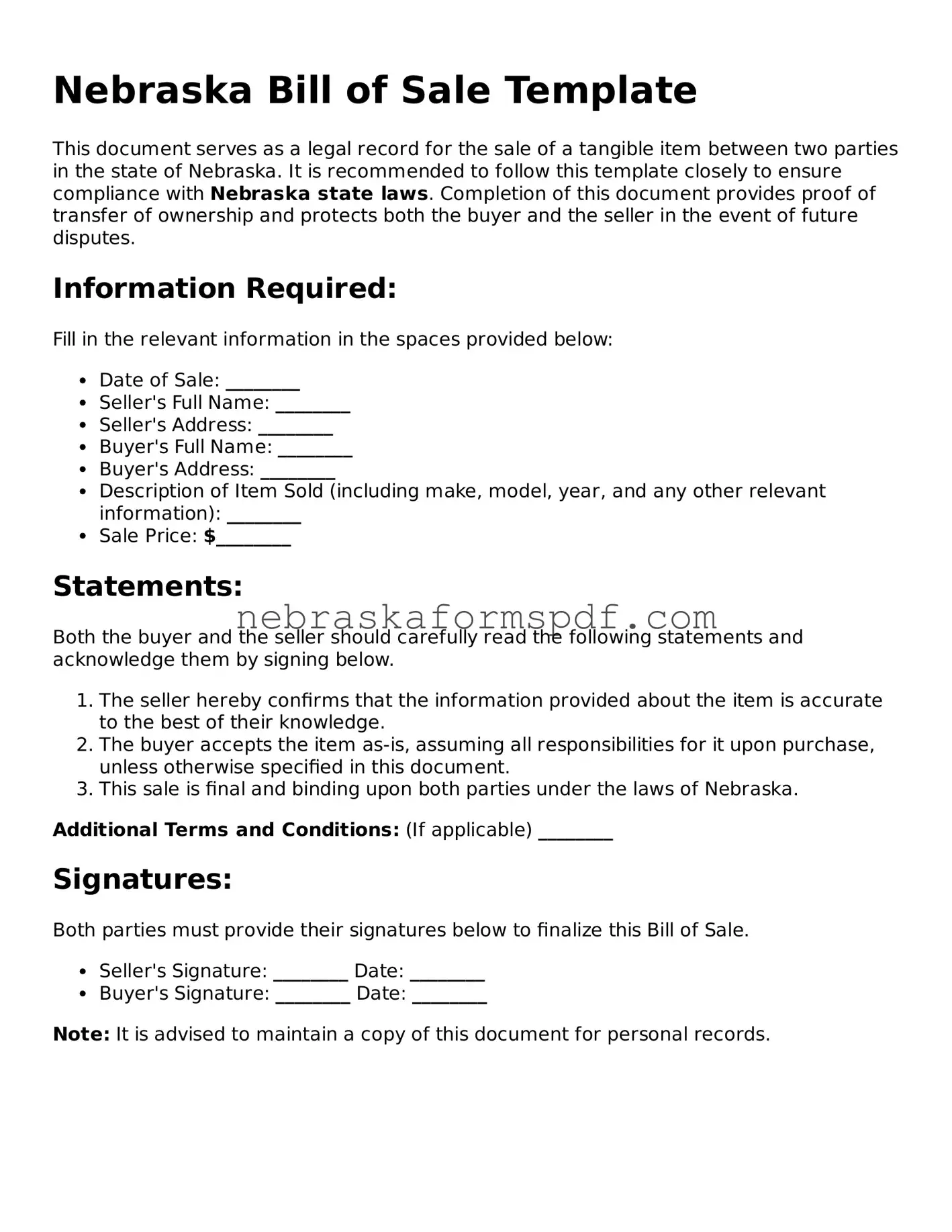Fillable Nebraska Bill of Sale Template
The Nebraska Bill of Sale form serves as a legal document to officially record the transfer of ownership of various types of personal property - from vehicles to livestock. It is a crucial document that provides both the buyer and the seller with a record of the transaction, ensuring a level of security and legal protection. Detailing the agreed-upon purchase price, date of sale, and identifying information about the items sold, this form is key in the private sale process.
Open Editor Here

Fillable Nebraska Bill of Sale Template
Open Editor Here

Open Editor Here
or
Click for PDF Form
Don’t exit with an incomplete form
Finish Bill of Sale online using a quick, guided process.